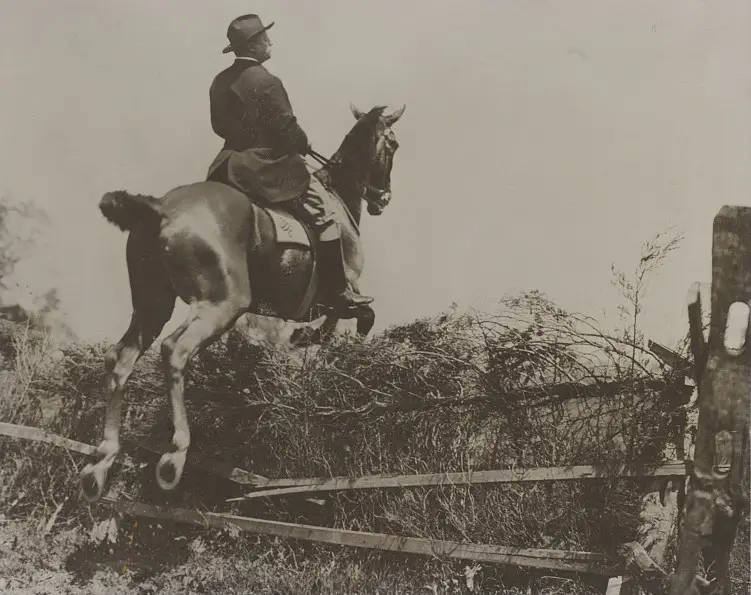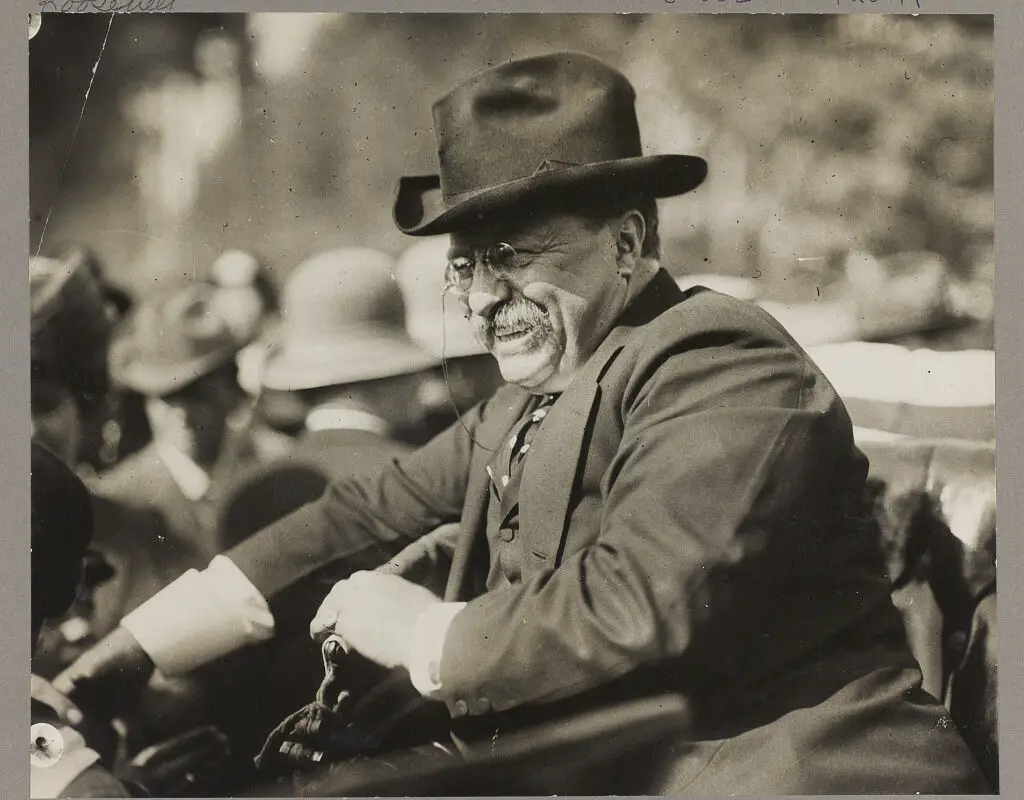Theodore Roosevelt, the 26th president of the United States, left a lasting impact on the nation through his robust leadership, reformist zeal, and pioneering environmental conservation efforts. Known as one of the most dynamic and influential leaders in American history, Roosevelt’s legacy transcends his tenure in office, as his progressive policies shaped the country’s future. Born into a wealthy New York family, Roosevelt’s journey was marked by overcoming physical hardships and developing a larger-than-life persona as a politician, statesman, soldier, and conservationist. This expose delves into the various facets of Roosevelt’s life, from his upbringing to his presidency, and examines how his vision for America not only sought to improve the lives of ordinary citizens but also protected the natural beauty of the country for future generations.
Early Life and Political Beginnings
Theodore Roosevelt was born in New York City on October 27, 1858, to a prominent and affluent family. Despite the wealth and privilege that surrounded him, Roosevelt’s childhood was marked by physical frailty and bouts of severe asthma. His determination to overcome these obstacles set the tone for much of his life, as he adopted a strenuous lifestyle of physical activity, which included boxing, horseback riding, and outdoor adventures.
Roosevelt’s intellectual curiosity was evident from a young age. He graduated from Harvard University in 1880, where he was known for his eclectic interests, ranging from natural history to political science. After a brief stint studying law at Columbia University, Roosevelt left school to enter public service, beginning his political career as a New York State Assemblyman in 1882. It was here that Roosevelt started to demonstrate his reformist tendencies, advocating for civil service reform and opposing political corruption.
A personal tragedy in 1884, where both his mother and wife died on the same day, led Roosevelt to retreat from politics temporarily. He spent the next few years in the Badlands of North Dakota, where he embraced the cowboy lifestyle and developed a deep passion for the wilderness, experiences that would profoundly shape his views on conservation.
Ascending to National Prominence

Roosevelt returned to public life with renewed vigor, serving as a U.S. Civil Service Commissioner, where he continued his fight against corruption, and later as the New York City Police Commissioner. In 1897, President William McKinley appointed him Assistant Secretary of the Navy, a role in which Roosevelt enthusiastically advocated for a strong naval presence and a more assertive foreign policy. His belief in American power and influence on the global stage was a precursor to his later actions as president.
With the outbreak of the Spanish-American War in 1898, Roosevelt resigned from his post and formed the Rough Riders, a volunteer cavalry unit. His leadership during the Battle of San Juan Hill in Cuba turned him into a national hero, elevating his political profile. That same year, Roosevelt was elected governor of New York, where he implemented progressive reforms, including regulating industries and promoting labor rights. His reputation as a reformer and dynamic leader caught the attention of national Republicans, leading to his selection as McKinley’s vice-presidential running mate in 1900.
Presidency and Progressive Reforms
After McKinley’s assassination in 1901, Roosevelt ascended to the presidency at the age of 42, making him the youngest president in U.S. history. His presidency was marked by a bold vision to reshape American society through progressive reforms. Roosevelt viewed the federal government as a necessary counterbalance to the power of large corporations and entrenched political interests.
One of his most significant domestic policies was his trust-busting agenda. At the time, powerful industrial monopolies, known as “trusts,” dominated various sectors of the economy, often engaging in unethical practices that hurt competition and consumers. Roosevelt initiated over 40 antitrust lawsuits under the Sherman Antitrust Act, targeting major corporations such as the Northern Securities Company, Standard Oil, and American Tobacco. His actions earned him the reputation of a “trust buster,” though he believed in regulating, rather than dismantling, large corporations.
Roosevelt’s approach to labor disputes also reflected his progressive philosophy. During the 1902 Anthracite Coal Strike, a conflict between mine owners and workers threatened to disrupt the nation’s coal supply. Roosevelt intervened and brokered a deal, marking the first time a president had mediated a labor dispute without automatically siding with management. His actions helped establish the principle that the government could play an active role in resolving economic conflicts.
Roosevelt’s domestic agenda also included landmark legislation aimed at consumer protection. The Pure Food and Drug Act and the Meat Inspection Act, both passed in 1906, were in response to public outcry over unsanitary conditions in food production, vividly depicted in Upton Sinclair’s novel The Jungle. These laws established the foundation for modern food safety regulations, demonstrating Roosevelt’s commitment to ensuring the well-being of American consumers.
Conservation Efforts and Environmental Legacy
One of the most enduring aspects of Roosevelt’s presidency is his contribution to conservation. His deep love for nature, shaped by his time in the Badlands and other wilderness areas, drove him to take unprecedented steps to preserve America’s natural resources. Prior to Roosevelt’s presidency, much of the nation’s wilderness was being exploited for timber, mining, and other commercial purposes with little regard for sustainability.
Roosevelt fundamentally changed how Americans viewed their natural landscapes. He believed the government was responsible for protecting the environment for future generations. During his presidency, Roosevelt established the United States Forest Service (USFS), placing more than 230 million acres of land under federal protection. This included the creation of five national parks, 18 national monuments, and 150 national forests. He also signed the Antiquities Act of 1906, which gave the president the authority to designate national monuments without Congressional approval, a tool Roosevelt used frequently to safeguard areas of historical and natural significance.
His conservation efforts were not without controversy. Many in the business community opposed Roosevelt’s policies, viewing them as an overreach of federal power. However, Roosevelt’s long-term vision for environmental stewardship has had a lasting impact on the country, inspiring future conservation movements and solidifying his legacy as one of the greatest champions of the American wilderness.
Foreign Policy: “Speak Softly and Carry a Big Stick”
Roosevelt’s foreign policy was equally progressive and assertive. His famous mantra, “Speak softly and carry a big stick,” reflected his belief in diplomacy backed by a strong military. He sought to expand American influence globally, particularly in Latin America and the Pacific. The construction of the Panama Canal, one of his major foreign policy achievements, opened a critical maritime route between the Atlantic and Pacific Oceans, greatly enhancing U.S. strategic and commercial interests.
Roosevelt also played a key role in brokering peace between Russia and Japan during the Russo-Japanese War, an effort that earned him the Nobel Peace Prize in 1906. His diplomacy demonstrated his belief in the importance of a balanced global power structure. However, his interventionist policies, especially in Latin America, laid the groundwork for future American involvement in the region.
The Bull Moose and Later Years
After leaving the presidency in 1909, Roosevelt remained active in politics, but his relationship with his successor, William Howard Taft, soured as Taft moved away from some of Roosevelt’s progressive policies. In response, Roosevelt ran for president again in 1912 under the banner of the Progressive Party, often referred to as the “Bull Moose Party.” Although he lost the election to Woodrow Wilson, his candidacy reflected his enduring commitment to reform and progressivism.
In his later years, Roosevelt continued to write and travel extensively. He remained a vocal critic of political corruption and an advocate for national defense. Roosevelt passed away on January 6, 1919, at 60, leaving behind a complex and transformative legacy.
Final Thoughts
His progressive vision for America defined Theodore Roosevelt’s presidency. He was a trailblazer in government regulation, labor rights, and environmental conservation, and his bold approach to foreign policy helped shape America’s role on the global stage. Roosevelt’s legacy endures in the parks and forests he preserved, the progressive reforms he championed, and the trust-busting precedent he set. His dynamic leadership style, energy, and foresight continue to inspire generations of leaders who seek to balance economic growth, social equity, and environmental stewardship. Theodore Roosevelt was more than just a president; he was a force for change whose contributions still reverberate across the United States today.



